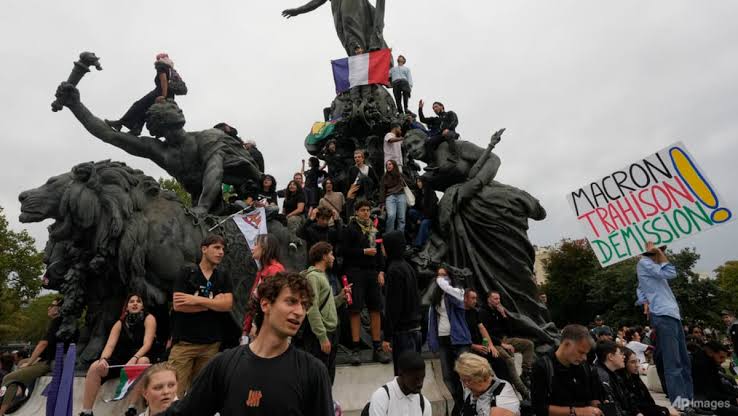Thousands of demonstrators took to the streets across France on Saturday to protest President Emmanuel Macron’s appointment of Michel Barnier as the country’s new Prime Minister.
The move has been widely criticized by left-wing parties, who accuse Macron of undermining democracy and manipulating the recent legislative elections.
The protests, led by left-wing groups including the far-left France Unbowed (LFI) party, condemn Macron’s decision as a denial of democracy. An Elabe poll revealed that 74% of French citizens feel Macron disregarded the election results, with 55% accusing him of effectively stealing them.
Barnier, a centre-right politician and former EU Brexit negotiator, was named Prime Minister after a two-month search that followed the legislative elections, which ended in a hung parliament divided into three major political blocs. In his first address as Prime Minister, Barnier noted the challenges of forming a government without a clear majority and expressed his desire to include members from across the political spectrum.
However, left-wing groups, particularly the New Popular Front (NFP) alliance, which emerged as the top force in the July elections, have condemned Macron’s decision. Nationwide protests were organized by left-wing leaders, unions, and student groups, with the LFI party alone announcing 130 demonstrations. There are also plans for potential strikes beginning on October 1.
The protests come amid mounting pressure from both the European Commission and bond markets for France to address its growing deficit. Barnier faces the difficult task of pushing through reforms and preparing the 2025 budget amid widespread opposition. He continues his consultations in an attempt to form a stable government, but faces the possibility of a no-confidence vote, especially as the critical 2025 budget debate looms in early October.
With the far-right National Rally (RN) party holding considerable sway in the new parliament, RN leader Jordan Bardella commented that Barnier “is a prime minister under surveillance,” signaling that nothing can be achieved without their involvement. As the protests continue, the French government’s ability to address the country’s pressing issues remains uncertain.


